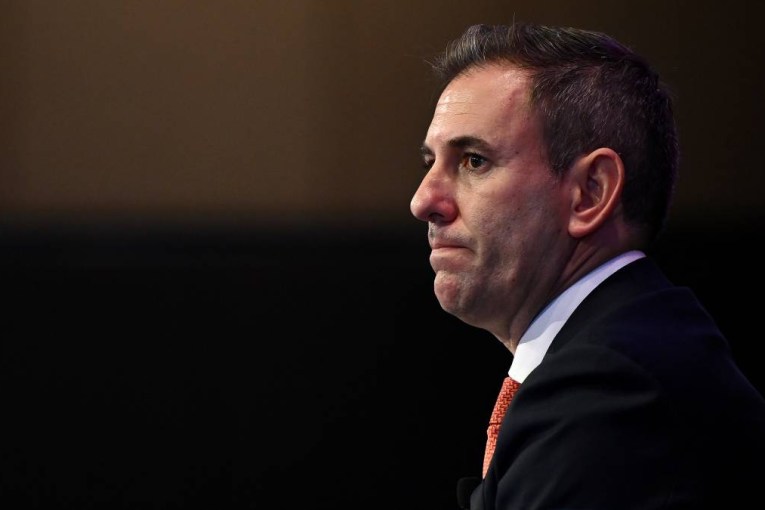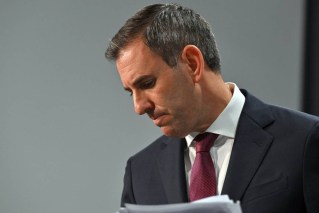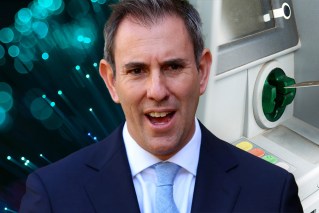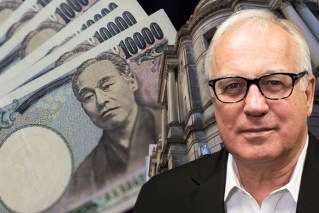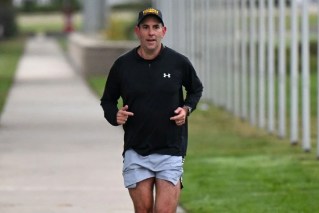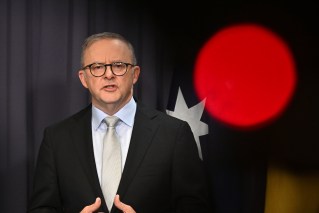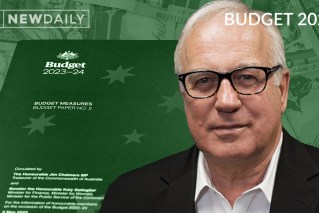‘Bumpy path ahead’: Virus containment key to economic recovery, says Reserve Bank governor
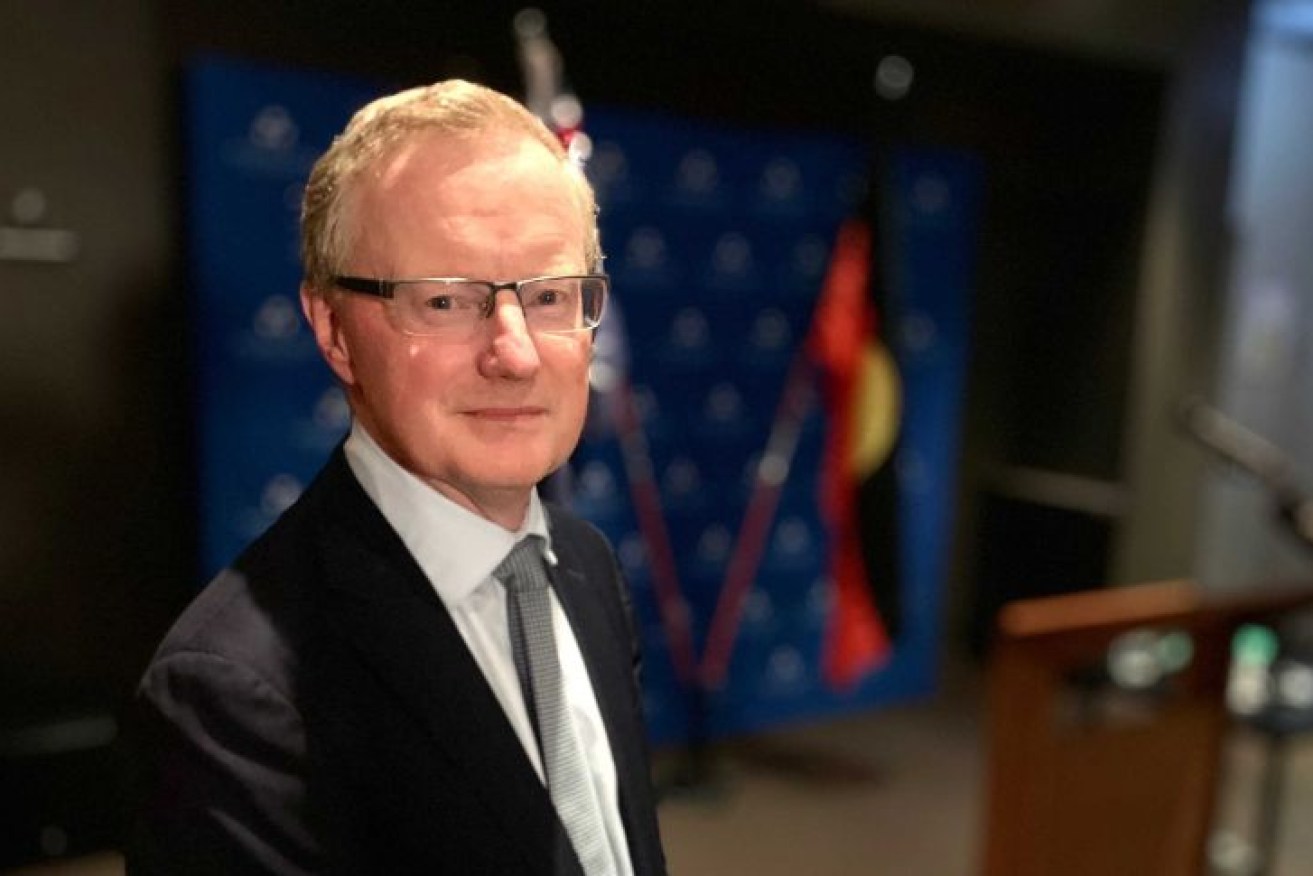
RBA governor Philip Lowe will be detailing the logic behind the latest rate cut. Photo: ABC
The Reserve Bank governor says Australia’s economy has passed its low point but faces a “bumpy path ahead”, with the federal government best placed to support the recovery.
In an annual speech to the Anika Foundation, Philip Lowe pointed to last week’s June jobs numbers as evidence that “we have now turned the corner” economically.
“In June, hours worked increased by 4 per cent and the number of employed people rose by 210,000,” he said.
“Notwithstanding this turnaround, the path ahead is expected to be bumpy and there are some major crosscurrents in the labour market at the moment.”
Dr Lowe warned one of those bumps was feedback from many businesses, particularly in construction and professional services, who said they were only able to hold on to their employees because they had an existing pipeline of work.
After the initial bounce, things do look like they’re plateauing out at the moment. That’s a concern,” he said.
“While some firms are bouncing back in hospitality … there are these other firms that are moving in the opposite direction.
“They’ve been able to survive because they had a big pipeline of work. That pipeline’s run off and they’re not getting many new contracts. Firms don’t want to invest.”
Dr Lowe said containing COVID-19 outbreaks and keeping coronavirus in check would be crucial to the strength and sustainability of the economic recovery.
“The fundamental thing is to address the health concerns and, if we can do that, then I think we can recover quite strongly,” he said.
“If we can’t give people confidence about health, the recovery is going to be very bumpy and very drawn out.”
Dr Lowe added that health advances, such as the rapid development of a vaccine, could see an extremely strong economic rebound.
Dr Lowe welcomes JobKeeper extension
The Reserve Bank boss said continued government support, such as the federal government’s JobKeeper and JobSeeker programs, which were extended on Tuesday in a scaled-back form, would be necessary to help the economy recover.
“I welcome the extension and tailoring of both those measures,” he said.
Dr Lowe said one of the main messages from the International Monetary Fund at a weekend video meeting of G20 central bank governors and finance ministers was not to remove government support too quickly.
“It’s very important that we keep the support measures going,” he related.
“We’ve got a while until the pandemic has passed and we need to continue to support businesses and households while we’re living through the pandemic.
“The IMF drew to our attention that the biggest policy mistake to make at the moment would [be] to be withdrawing the support too early.”
He said the government was exceptionally well placed to provide this continued support.
“The Australian government is able to finance itself in the bond market, and it can do so on very favourable terms,” Dr Lowe said.
“There is strong demand for government debt and the Australian government can borrow for five years at just 0.4 per cent and for 10 years at just 0.9 per cent.
“These are the lowest borrowing costs since Federation.”
Not only are interest rates low, but Dr Lowe said Australia entered the pandemic with very low public debt relative to other nations.
“Debt across all levels of government in Australia, relative to the size of our economy, is much lower than in many other countries and it is likely to remain so,” he explained.
“So the public balance sheet is well placed to smooth out the shock to private incomes and support the economy through the pandemic.”
No MMT for Australia
In that context, Dr Lowe on Tuesday categorically ruled out any direct central bank financing of the federal government’s spending, as suggested by Modern Monetary Theory (MMT).
“Monetary financing of fiscal policy is not an option under consideration in Australia, nor does it need to be,” he told the webinar audience.
“The government has no trouble accessing finance to undertake the fiscal expenditure that it wanted, it doesn’t need help from the central bank.
“I think if we were to provide government financing, the confidence that has been built up around our institutional arrangements would weaken and that would be bad for confidence, investment and jobs over time.”
Dr Lowe said there was no such thing as free money, and any direct central bank financing of the federal government would ultimately result in either higher taxes or higher inflation.
“The message here is that somebody always pays,” he argued.
“It certainly is possible for the central bank to change when and how the spending is paid for, but it is not possible to put aside the government’s budget constraint permanently.
Where countries have, in the past, sought to put aside this constraint, the result has been high inflation.”
Dr Lowe did acknowledge the risk of the kinds of hyperinflation seen previously in Zimbabwe, or more recently in Venezuela, was currently very low.
Using its preferred measure, the RBA had failed to hit even the lower end of its 2 to 3 per cent inflation target for the entire four years of Dr Lowe’s tenure so far.
‘We’re not out of options’
Dr Lowe again downplayed the possibility of interest rates being cut much further from their current record low of 0.25 per cent.
“There has been no change to the board’s view that negative interest rates in Australia are extraordinarily unlikely,” he told an audience of business economists, many of whom work in the banking sector.
“Our reading of the international evidence is that the main potential benefit from negative rates is downward pressure on the exchange rate.
“But negative interest rates come with costs too. They can cause stresses in the financial system that are unhelpful for the supply of credit.
“They can also encourage people to save more, rather than spend more, so they can be counter-productive from that perspective too.
“So this is not a direction we need to head in.”
But Dr Lowe said if the economic recovery stalled, the RBA had a few more tricks up its sleeve to try and boost growth.
“We’re not out of options, but exercising any of those options isn’t the right thing to do at the moment,” he concluded.
–ABC
